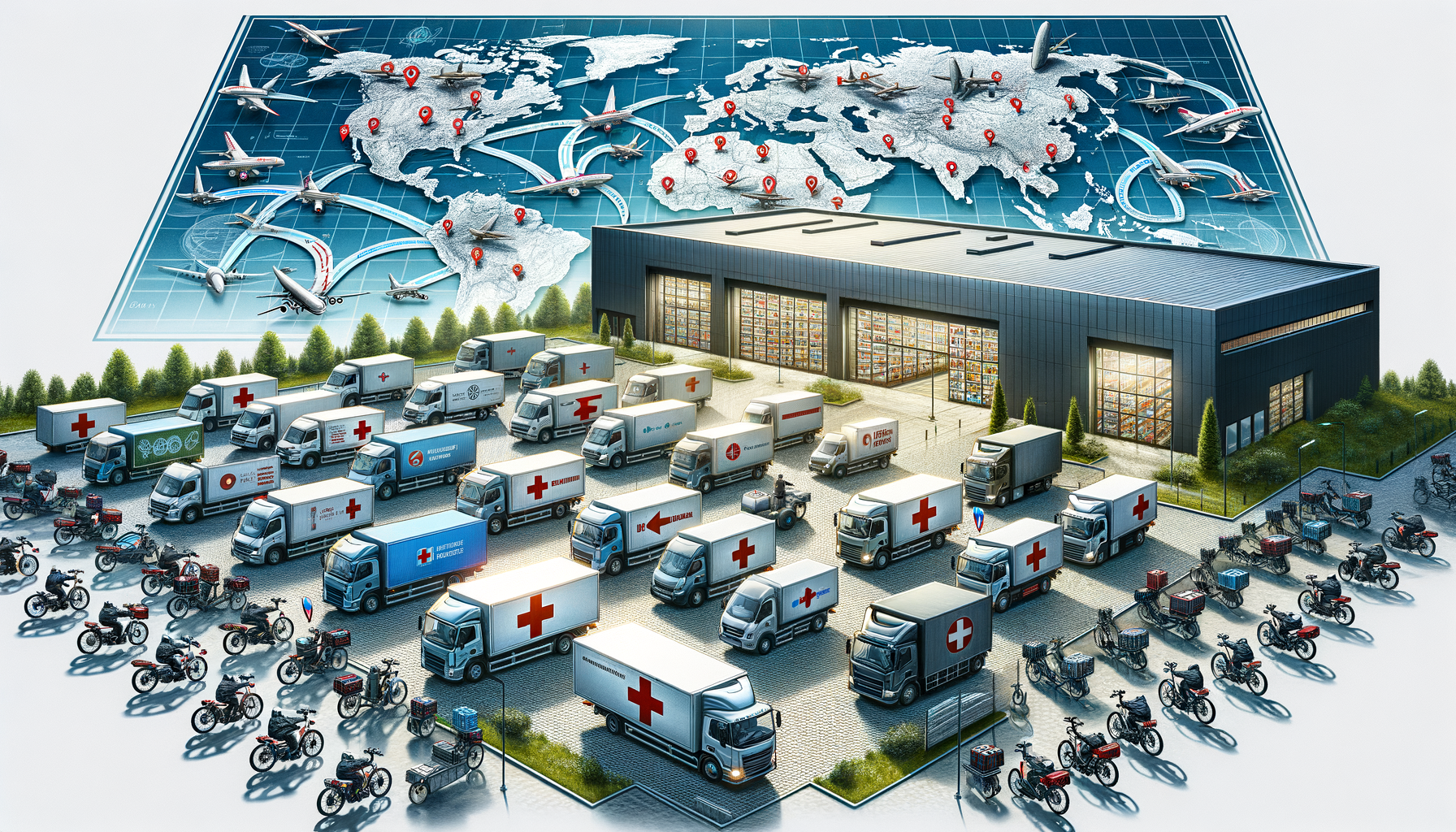
Exploring Careers as Medicine Delivery Drivers for Global Companies
The Role of Medicine Delivery Drivers
Medicine delivery drivers play an essential role in the healthcare system by ensuring that vital medications reach patients on time. These drivers are the backbone of medical logistics, bridging the gap between pharmacies and patients, especially those who are unable to collect their prescriptions in person. The demand for medicine delivery services has surged, particularly in the wake of global health crises, highlighting the importance of reliable and efficient delivery systems.
Medicine delivery drivers are responsible for a range of tasks that require precision and care. They must manage routes effectively to ensure timely deliveries, handle medications with care to maintain their integrity, and sometimes provide basic customer service when interacting with patients. Their work is not just about transportation; it’s about ensuring patient safety and satisfaction.
The job requires a keen attention to detail and a strong sense of responsibility. Drivers must be knowledgeable about the medications they transport, understanding any special handling requirements, such as refrigeration or protection from light. Additionally, they must adhere to strict privacy laws to protect patient information during deliveries.
This profession is crucial in maintaining the efficiency of healthcare services and ensuring that patients receive their medications without delay. Medicine delivery drivers contribute significantly to the healthcare ecosystem by providing a reliable link between healthcare providers and patients.
The Importance of Delivery Service in Healthcare
Delivery services in healthcare are pivotal in ensuring that medical supplies and medications are distributed efficiently. These services are not limited to medications but also include the transport of medical equipment and specimens for testing. The logistics involved in healthcare delivery services are complex, requiring meticulous planning and coordination.
One of the primary benefits of a robust delivery service is the enhancement of patient care. By ensuring timely delivery of medications and medical supplies, healthcare providers can maintain continuity of care and avoid disruptions that could compromise patient health. This is particularly vital for patients with chronic conditions who rely on regular medication to manage their health.
Moreover, delivery services help reduce the burden on healthcare facilities by minimizing the need for patients to visit clinics or hospitals for medication pickup. This is especially beneficial in rural or underserved areas where access to healthcare facilities may be limited.
The efficiency of delivery services is often enhanced by technology, which allows for real-time tracking of deliveries and ensures that any issues can be addressed promptly. This integration of technology not only improves service reliability but also enhances patient trust and satisfaction.
Medical Pick Up and Delivery Service: A Closer Look
Medical pick-up and delivery services are a specialized segment of healthcare logistics that focus on the transportation of medical items from one location to another. This service is vital for the seamless operation of healthcare services, ensuring that everything from prescription medications to laboratory samples is transported safely and efficiently.
These services often involve a network of couriers who are trained to handle medical items with the utmost care. The transportation of medical items requires adherence to strict protocols to maintain the integrity and efficacy of the items being delivered. For instance, some medications require refrigeration, while others must be protected from light or humidity. Couriers must be well-versed in these requirements to ensure that items are delivered in optimal condition.
Medical pick-up and delivery services also play a crucial role in emergency situations where time is of the essence. For example, the rapid delivery of blood or organ donations can be life-saving. The efficiency and reliability of these services are paramount in such scenarios.
In addition to their logistical role, these services often serve as a point of contact between healthcare providers and patients. Couriers may need to communicate important information or instructions regarding the use of medications, further underscoring the importance of professionalism and accuracy in this field.
Challenges Faced by Medicine Delivery Drivers
While the role of medicine delivery drivers is indispensable, it is not without its challenges. One of the primary challenges is navigating the complex logistics involved in delivering medications across various locations. Drivers must be adept at managing their routes to avoid delays and ensure timely deliveries, which can be particularly challenging in urban areas with heavy traffic.
Another significant challenge is maintaining the integrity of medications during transit. Drivers must be vigilant in adhering to storage requirements, such as temperature control, to ensure that medications remain effective upon delivery. This requires a thorough understanding of the specific needs of different types of medications.
Privacy and security concerns also present challenges for medicine delivery drivers. They must ensure that patient information remains confidential and that medications are delivered to the correct individuals. This requires strict adherence to privacy laws and protocols, as well as meticulous attention to detail.
Additionally, drivers often face the pressure of meeting delivery deadlines, which can be stressful. They must balance this pressure with the responsibility of ensuring safe and accurate deliveries, making the role both demanding and rewarding.
Future Prospects of Delivery Services in Healthcare
The future of delivery services in healthcare looks promising, with advancements in technology poised to enhance efficiency and reliability. The integration of technologies such as GPS tracking and automated systems is expected to streamline operations, allowing for more precise and timely deliveries.
Moreover, the growing emphasis on patient-centered care is likely to drive demand for personalized delivery services. This includes the ability to schedule deliveries at convenient times for patients and providing real-time updates on delivery status. Such enhancements in service delivery are expected to improve patient satisfaction and adherence to medication regimens.
In addition, the rise of telemedicine and home healthcare services is likely to increase the demand for efficient delivery services. As more patients receive care outside of traditional healthcare settings, the need for reliable delivery of medications and medical supplies will continue to grow.
Overall, the prospects for delivery services in healthcare are bright, with ongoing innovations and a focus on enhancing patient care driving the industry forward. As these services continue to evolve, they will remain a critical component of the healthcare system, ensuring that patients receive the care they need, when they need it.


